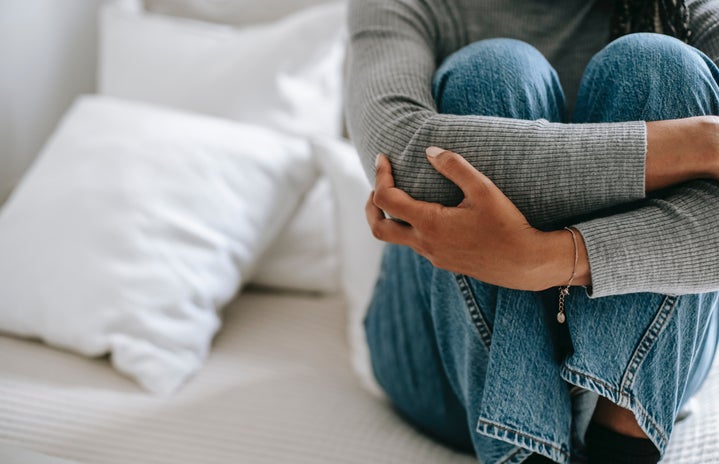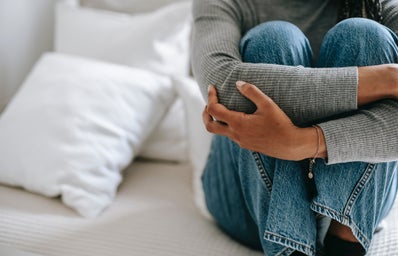Trigger Warning: This article touches on eating disorders and mental health, which may be distressing to some readers. Please read it at your own discretion. Names and identifying features have been kept anonymous to protect the identity of the interviewee.
The Covid-19 pandemic has seen an alarming rise in various mental health disorders across the U.K. this past year, with eating disorder numbers climbing like never before. With the pandemic forcing young and impressionable individuals to isolate and stay at home, eating disorders have begun to rise due to people feeling as though they have lost control over their lives due to the national lockdowns and restrictions (The Guardian). Currently, there has been an increase of 128% in numbers of young people awaiting treatment for eating disorders compared to 2019, with numbers expected to continue to rise.
However, even before the pandemic, eating disorders have continuously been a growing problem in young women aged between 12 and 20 and are incredibly common to affect those studying at university. With the ability to control your daily meals, alongside the stress of moving away into a new environment, it is estimated that 53% of students are struggling with eating disorders whilst at university. If you take the pandemic into account, these numbers become increasingly more concerning, especially with mental health waiting lists being at an all-time high, making it more difficult for those suffering to receive adequate support. Additionally, there are also tons of harmful myths perpetuated about eating disorders, particularly to do with physical health and weight. It is estimated that only around 6% of individuals suffering from an eating disorder look physically unwell; however, society and social media have contributed to the unhealthy idea that those suffering must look extremely skinny and emaciated. This false narrative not only contributes to dangerous self-image idealisation but also to many young women not noticing they have an eating disorder due to not fitting the stereotype or standard.
For the purpose of this article, I interviewed a young woman studying at the University of Brighton who has suffered from an eating disorder for a majority of her teenage years to gain a better insight into the cause, the support given and also how the stereotypes can negatively affect receiving treatment and recovery.
At what age did you first develop an eating disorder, and what do you feel caused it?
“I’ve struggled with my weight and body dysmorphia for as long as I can remember. I was a gymnast which involved a lot of over analysing my personal image and body, but I think I was around 14 or 15 when I first developed an eating disorder. I experienced a lot of anxiety and used food restrictions and exercise as a form of control.”
What were the main symptoms you experienced?
“The main symptoms of my eating disorder were caused by my food restrictions and over exercise. This caused side effects of tiredness, dizziness, a loss of a menstrual period, mood swings, digestive issues and weight loss – however, my weight loss was not the main problem for me.”
Did you ever open up to family or friends about it? If so, how did they react?
“I spoke more to my friends about it than my family, but only when they started to notice a change in my behaviour, which was about a year into my struggles as eating disorders can be hard to see. I lost a lot of friends as I became distant and wasn’t fun to be around, and more often than not people don’t have the headspace to support you. My parents tried to support me, but often just got frustrated and didn’t understand.”
How did you find getting help for an eating disorder? What, if anything, went well and what didn’t?
“I first saw a doctor at 16 for dizziness and nausea but as my weight was considered healthy, he neglected to consider that I was suffering from an eating disorder. He did however, make me write a food diary, but this was the worst thing a doctor has ever done for me. I saw him again a year later, but he said my weight loss was ‘healthy’ and to come back if I lost any more. The last doctor I saw was the best, she listened to me and referred me to a mental health nurse and an eating disorder clinic. However, I never got an appointment due to my physical health being considered okay.”
What has helped you on your road to recovery?
“Mainly my friends, my family – primarily my sister – and also being able to study and work towards my goals and career.”
Do you feel as though the current pandemic has worsened eating disorders?
“Yes, for me the pandemic made me feel very out of control as there was no structure for anything. I was lonely and used it to cope. This was similar for a lot of people, and I feel as though the influence of social media has massively glamorised mental illnesses as a whole throughout the pandemic.”
Finally, is there anything else you would like to add?
“It’s really hard to ask for help for eating disorders, especially when you don’t fit certain stereotypes or weight criteria; but it is important to keep trying and know that you are valid. Only 6% of people with eating disorders are actually underweight. Also, you’ll never regret recovery. I still struggle to this day, but choosing to recover is the best decision I have ever made.”
Ultimately, with the fact that eating disorders have the highest mortality rate of any mental illness, along with the studies showing the negative effect that the pandemic has contributed, it becomes clear that awareness of ED’s is more crucial now more than ever. If you or anyone you know is suffering from an eating disorder, you can find helpful resources HERE.
Additionally, if you are a student at the University of Brighton, you can find our universities wellbeing service HERE.


